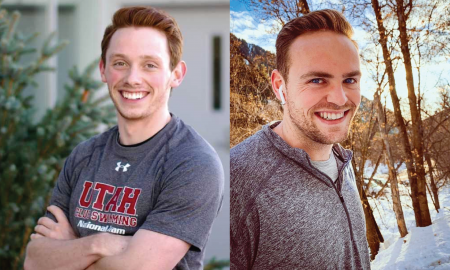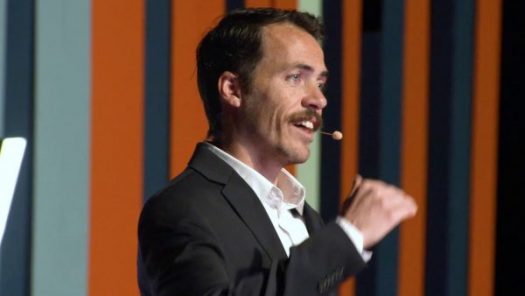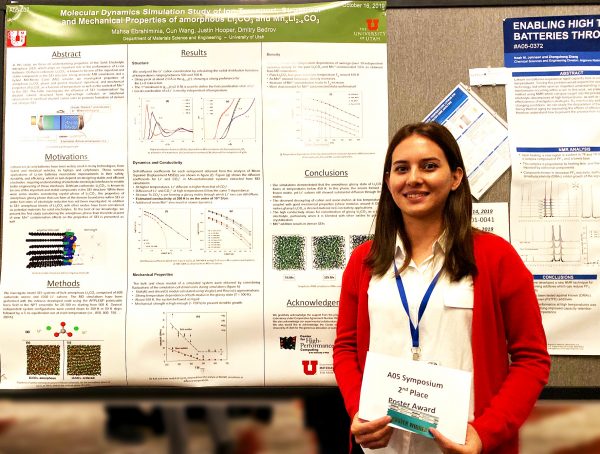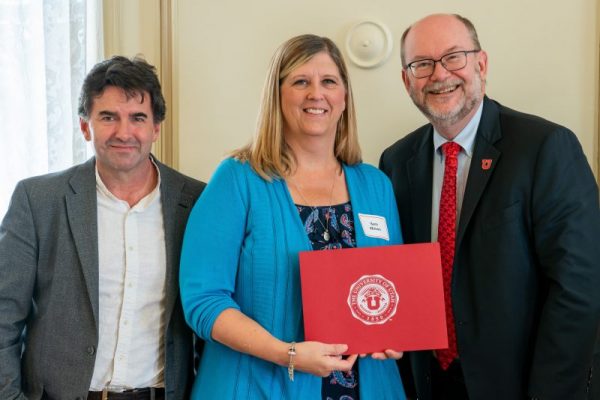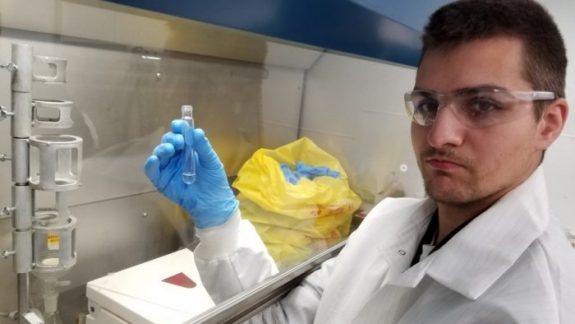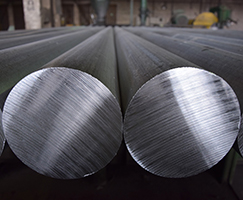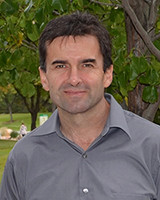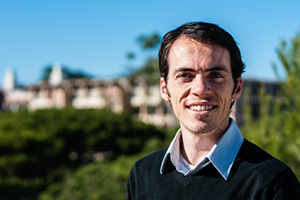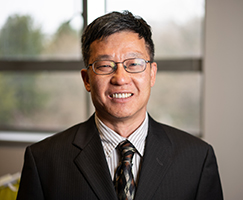Research activities in the MRSEC Soft Materials Research Center (SMRC) that includes molecular simulation group of Prof. Bedrov have discovered an elusive phase of matter, first proposed more than 100 years ago and sought after ever since. The “ferroelectric nematic” phase of liquid crystal has been described in recent study published in the Proceedings of the National Academy of Sciences (PNAS 2020 117, 14021-14031; https://doi.org/10.1073/pnas.2002290117). The discovery opens a door to a new universe of materials.
Nematic liquid crystals have been a hot topic in materials research since the 1970s. These materials exhibit a curious mix of fluid- and solid-like behaviors, which allow them to control light and have been extensively used in liquid crystal displays (LCDs) in many laptops, TVs and cellphones. The nematic liquid crystals like dropping a handful of pins on a table. The pins in this case are rod-shaped molecules that are “polar”—with heads that carry, say, a positive charge and tails that are negatively charged. In a traditional nematic liquid crystal, half of the pins point up and the other half point down, with the direction chosen at random. A ferroelectric nematic liquid crystal phase, however, patches or “domains” form in the sample in which the molecules all point in the same direction, either up or down, and therefore creating a material with polar ordering.
Debye and Born first suggested in the 1910s that, if you designed a liquid crystal correctly, its molecules could spontaneously fall into a polar ordered state. In the decades since, however, scientists struggled to find a liquid crystal phase that behaved in the same way. That is, until MRSEC researchers began examining RM734, an organic molecule created by a group of British scientists several years ago. That same British group, plus a second team of Slovenian scientists, reported that RM734 exhibited a conventional nematic liquid crystal phase at higher temperatures. At lower temperatures, another unusual phase appeared. When the MRSEC team tried to observe that strange phase under the microscope they noticed something new. Under a weak electric field, this phase of RM734 was 100 to 1,000 times more responsive to electric fields than the usual nematic liquid crystals and the molecules are nearly all pointing in the same direction.
However, experimentally it is hard to zoom down to molecular scale and understand why and how these RM734 molecules were achieving such collective behavior. This is where atomistic molecular dynamics simulations conducted by Dengpan Dong and Xiaoyu Wei from Prof. Bedrov group allowed to gain atomic scale understanding. First, the simulations were able to confirm that aligning all RM734 molecules in the same direction is energetically more favorable than to have conventional random alignment of molecular dipoles. Second, detail analysis of structural and orientational correlations obtained from simulations identified key groups and intermolecular interactions that stabilize the ferroelectric nematic phase. Using these tools Bedrov’s group currently explores other chemical structures that can lead to a similar behavior.
Discovery of this new liquid crystal material starts a new chapter in condensed-matter physics and could open up a wealth of technological innovations—from new types of display screens to reimagined computer memory. Within couple days of publication, the manuscript got a world-wide attention and was picked up by more than 25 news outlets around the world.

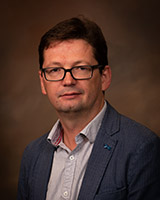

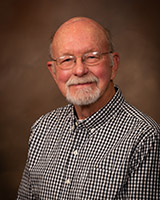 The National Academy of Inventors has released a new video about the legacy of Gerald Stringfellow, University of Utah Distinguished Professor of both electrical and computer engineering and materials science and engineering.
The National Academy of Inventors has released a new video about the legacy of Gerald Stringfellow, University of Utah Distinguished Professor of both electrical and computer engineering and materials science and engineering.